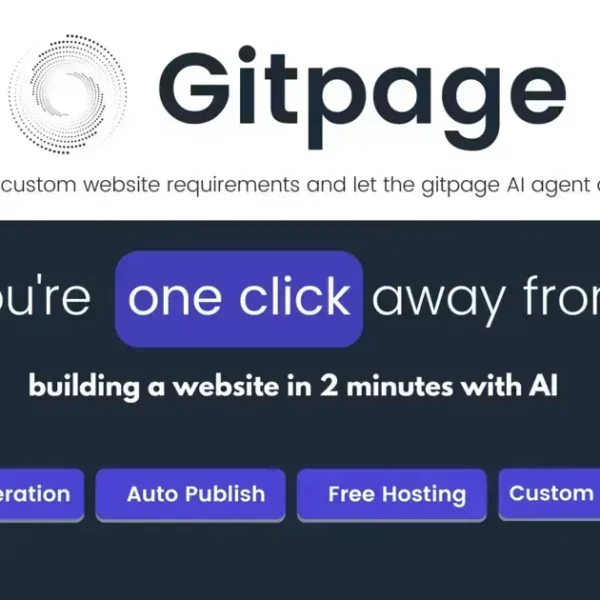Marketing agency software streamlines project management, enhances team collaboration, and improves client communication. By automating repetitive tasks and providing valuable analytics, these tools enable agencies to increase efficiency and deliver better results for their clients.
Marketing agency software is revolutionizing the way agencies manage their workflows. With the right software, agencies can streamline tasks, enhance client relationships, and significantly boost their productivity. This article will explore essential features, benefits, and how to choose the best software for your marketing agency.
What is Marketing Agency Software?
Marketing agency software refers to tools designed to help marketing agencies manage their projects, streamline processes, and enhance collaboration. These software solutions can automate tasks, provide analytics, and improve communication between team members and clients. They allow agencies to focus on creativity and strategy rather than getting bogged down by administrative details.
Typically, marketing agency software includes features for project management, billing, CRM (customer relationship management), and reporting. This allows agencies to keep everything organized in one place, making it easier to track progress and performance.
Types of Marketing Agency Software
There are various types of software available, including:
- Project Management Tools: Help teams plan, track, and execute marketing campaigns efficiently.
- Analytics Platforms: Provide insights into campaign performance and client engagement metrics.
- CRM Systems: Manage client relationships and improve communication.
- Content Management Systems (CMS): Simplify website and content creation processes.
- Email Marketing Software: Facilitate targeted email campaigns and automation.
By implementing marketing agency software, agencies can increase productivity, enhance client service, and ultimately drive better results for their clients.
Key Features to Look For

When selecting marketing agency software, there are several key features that can significantly impact your agency’s efficiency and effectiveness. Knowing what to look for can help you choose the best tool for your needs.
User-Friendly Interface
A user-friendly interface is crucial. The software should be intuitive, allowing team members to navigate easily. This reduces the learning curve and encourages team collaboration.
Project Management Capabilities
Look for tools that offer robust project management features. This includes task assignment, progress tracking, deadline reminders, and the ability to visualize project timelines with Gantt charts. This helps keep projects on schedule.
Collaboration Tools
Effective communication is key in any marketing agency. The software should include features such as shared calendars, chat functions, and file sharing to facilitate collaboration among team members and clients.
Analytics and Reporting
Choose software that provides advanced analytics and reporting capabilities. This allows agencies to measure the success of campaigns through metrics like engagement rates and conversion data. Insightful reports help in making informed decisions and presenting results to clients.
Integrations with Other Tools
Ensure that the software can integrate with other tools you already use, such as CRM systems, email marketing platforms, and social media management tools. This creates a seamless workflow and enhances productivity by eliminating the need for double data entry.
Benefits of Using Marketing Agency Software
Implementing marketing agency software comes with numerous benefits that can enhance the overall functioning of your business. Here are some key advantages that agencies can experience:
Increased Efficiency
By automating repetitive tasks, marketing agency software allows teams to focus on high-priority projects. Time-consuming processes such as client communication, reporting, and data entry can be managed with ease, leading to increased efficiency.
Improved Collaboration
With features designed for collaboration, such as shared workspaces and communication tools, team members can work together more effectively. This results in better ideas and improved creative strategies, which ultimately benefits the client.
Enhanced Client Service
Marketing agencies can provide better service by using software that tracks client interactions and project progress. This information helps teams respond quickly to client requests and deliver results that align with their expectations.
Data-Driven Decisions
Most marketing agency software comes with analytics and reporting tools that enable agencies to track campaign performance. This data allows agencies to make informed decisions, adjust strategies as needed, and demonstrate results to clients.
Scalability
As your agency grows, the right software can scale with you. Many solutions offer add-ons and integrations that allow agencies to expand their capabilities without needing to switch systems, making it easier to adapt to changing market demands.
Comparing Top Marketing Agency Tools

When choosing marketing agency software, it’s essential to compare the leading tools on the market. Each software solution offers unique features, pricing models, and integrations that can greatly impact your agency’s operations. Here’s a comparison of some top marketing agency tools:
1. HubSpot
HubSpot is a comprehensive marketing platform that provides tools for CRM, email marketing, social media management, and analytics. Its user-friendly interface and robust customer support make it ideal for agencies of any size. However, it can be pricier compared to other tools.
2. Asana
Asana is a project management tool that helps marketing teams organize tasks and collaborate efficiently. It allows you to set deadlines and assign tasks to team members, ensuring that everyone is on the same page. Its simple layout and integrations with other software enhance its usability and effectiveness.
3. Trello
Trello uses a card-based system for project management, making it visually appealing and easy to use. Teams can create boards for different projects and move cards to reflect progress. It’s particularly useful for teams that thrive on visual task management.
4. Monday.com
Monday.com provides visual project management and collaboration features, making it easy to track projects and workloads. Its versatility allows you to customize dashboards according to your agency’s specific needs. Pricing is based on the number of users and features selected.
5. ClickUp
ClickUp is an all-in-one tool that offers project management, document sharing, goals tracking, and more. It is highly customizable, allowing agencies to tailor their workflows. Its competitive pricing and extensive feature set make it a popular choice.
When comparing these tools, consider factors such as your agency size, budget, and specific needs. Each tool has strengths that can benefit different aspects of your marketing strategy.
Implementing Marketing Software in Your Agency
Implementing marketing software in your agency can be a transformative process that enhances productivity and improves client outcomes. Here’s how to approach the implementation effectively:
1. Assess Your Needs
Before choosing software, evaluate your agency’s specific needs. Consider factors like team size, common tasks, and the types of clients you serve. Ask team members for input to ensure the software will meet everyone’s requirements.
2. Research and Choose Software
Once you know your needs, start researching available marketing software options. Look for tools that provide the features you need, such as project management, analytics, and CRM capabilities. Compare user reviews, pricing, and customer support for each option.
3. Train Your Team
Proper training is crucial for successful implementation. Ensure that all team members are comfortable using the new software. Consider hosting training sessions or providing resources such as tutorial videos and user guides. This will help everyone get up to speed quickly.
4. Start with a Pilot Program
Instead of implementing the software across your entire agency at once, consider starting with a pilot program. Choose a small team or a specific project to test the software in action. This allows you to troubleshoot any issues and make adjustments before a full rollout.
5. Continuously Evaluate and Optimize
After implementation, continuously assess how the software is impacting your agency’s operations. Gather feedback from team members and clients to identify areas for improvement. Be open to adjusting your use of the software to better fit your evolving needs.
In Conclusion: Embracing Marketing Agency Software
Embracing marketing agency software can lead to significant improvements in your agency’s workflows, efficiency, and client satisfaction. By automating tasks and enhancing collaboration, these tools can help free up time for more strategic work.
As you implement the right software, focus on training your team and assessing your specific needs to find the best fit. Remember, starting small with a pilot program can provide valuable insights and ensure a smoother transition.
With careful consideration and proper execution, marketing agency software can transform the way you work, enabling you to drive better results for your clients and grow your agency.
FAQ – Common Questions About Marketing Agency Software
What is marketing agency software?
Marketing agency software refers to tools that help agencies manage projects, automate tasks, and enhance client communication.
How can marketing software improve efficiency in my agency?
It automates repetitive tasks, allowing your team to focus on more strategic activities, thus increasing productivity.
What are some key features to look for in marketing agency software?
Look for user-friendly interfaces, project management capabilities, collaboration tools, analytics, and integrations with other software.
How do I train my team to use new marketing software?
Provide training sessions, resources such as tutorials, and allow gradual adaption to ensure everyone is comfortable using the new tools.
Is it necessary to start with a pilot program when implementing software?
Yes, a pilot program helps identify any challenges and allows for adjustments before a full rollout across the agency.
Can marketing agency software scale as my agency grows?
Absolutely, many solutions offer scalable options and add-ons that expand functionality as your agency’s needs evolve.




